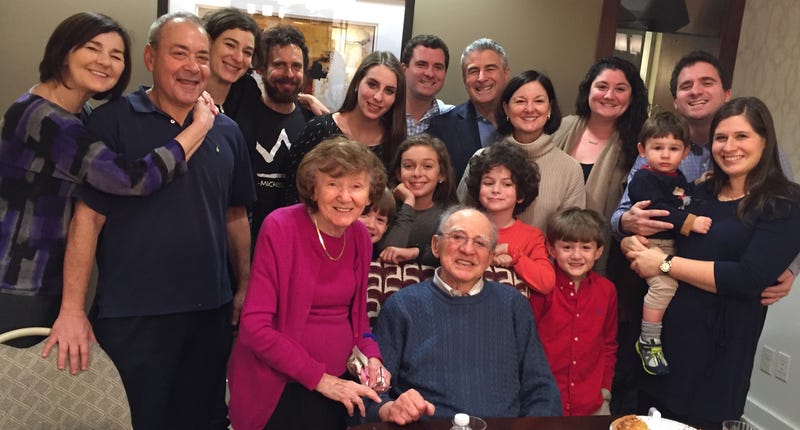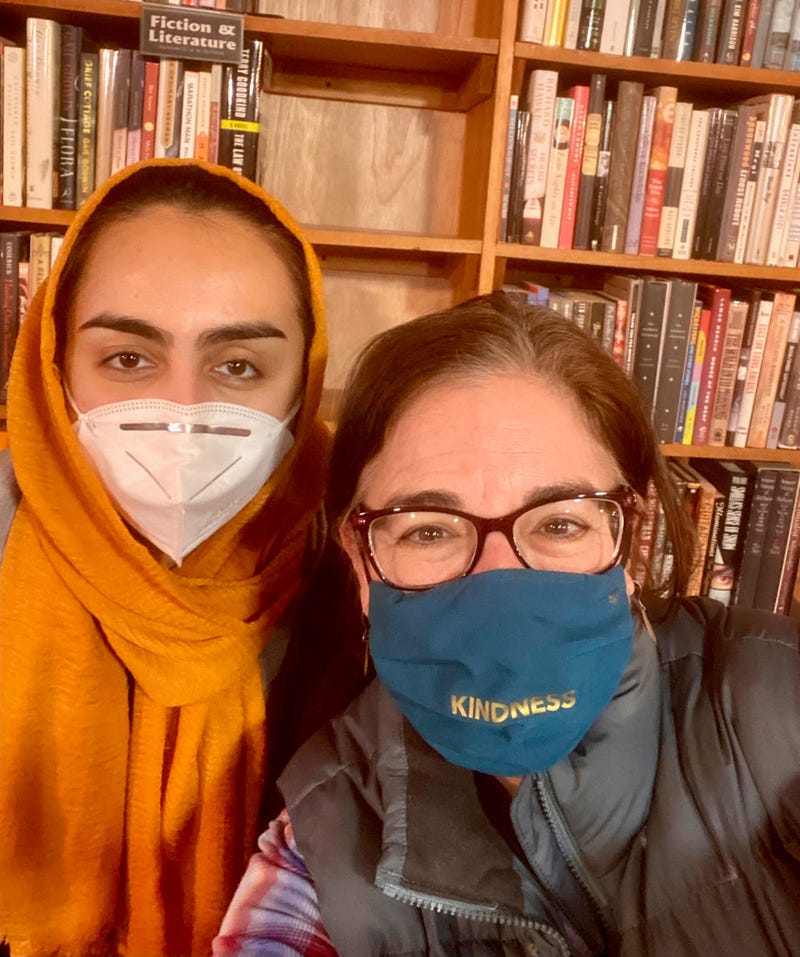
When Jonathan Kantor saw the images of thousands of people attempting to flee as the Taliban regained control of Afghanistan last August flash across his television screen, another, more personal picture flashed into his mind.
That image was of his beloved grandparents, Irving and Sonia Sklaver, who fled from their native Poland following the Nazi invasion in 1939.

To Kantor, the parallels between what his grandparents faced and what the Afghans are facing were immediate. That led him to take action to help Afghan refugees resettling in America with assistance from The Jewish Federations of North America.
“My grandmother was about 11 or 12 years old when the Nazis came and my grandfather was about 13 or 14,” he told CBS Eye on Veterans.
Kantor’s grandparents, who came from a town in Poland that was later redistricted to Ukraine following World War II, faced the same decision many Jewish families faced: do we stay or do we try and flee?
“I think you hear the word pogrom for example in Jewish history,” he explained. “There were plenty of times when it was a false alarm and hey, we can continue to live our normal lives and be okay. But, there were also times when it wasn’t safe to stay and there was some real persecution.”
Kantor’s grandparents told him that many younger Poles opted to leave while those who were older stayed. Irving Sklaver was the youngest of four brothers in a farming family.
“He decided with his brothers that they were going to get on bicycles and ride as far away from Poland as they possibly could and head east,” he said.
Kantor said the four brothers were scrappy and figured out ways to hide their Jewish identity and sold items on the black market.
“There were times when one or two of them were caught, one was sent to a prison camp in Siberia, one was killed on the way,” he continued.
They eventually found their way to Uzbekistan, where they were welcomed with open arms. Millions of Jews and other ethnic minorities in Europe were not as fortunate as the brothers.
Sonia, however, remained in Poland with her family.
“There was an incident when the Nazis came knocking at the door when my grandmother was out,” he said. “Her sister and mother were killed basically in the house right away.”
Sonia, who was 13 at the time, had blonde hair and blue eyes, and spoke several languages.
“She decided she was going to go door to door to try to find any family that might need a nanny,” he said.
Eventually, she found a family to work for. Things were fine for a few years until the grandmother in that family began to suspect she was Jewish and sent her to a Catholic priest to confess her sins.
“She confessed everything,” Kantor said. “The priest gave her a cross to wear around her neck and said your secret is safe with me.”

When the war was over, Irving returned to his hometown in Poland and found a list of the names of the people who survived. Sonia’s name was on the list and Irving tracked her down. They went on to marry and emigrated to the United States, helping others to come to this country.
“I grew up watching this and I grew up knowing that it really doesn't matter what religion somebody is or where they come from,” he said. “When somebody is in need if you have the opportunity, you help them.”
Fast forward to August 2022. Through a partnership with the Shapiro Foundation, JFNA stepped up to help resettle thousands of refugees who made their way to the United States.
Darcy Hirsch, director of public affairs for JFNA, said the umbrella organization represents 146 local Jewish federations around the country and 300 smaller groups.
Family Services in Greenwich, Connecticut received a grant from JFNA to help with the resettlement effort. Kantor, who is 38, received a phone call from JFS asking if he would help out with the effort. He was paired with a couple of young Afghan males who he is helping by introducing them to the American culture and way of life.
“If there is anything I can do to honor my grandparents, it would be that, it would be helping others regardless of where they are from,” he said.
Hirsch said the partnership has so far helped resettle 1,700 Afghans across the U.S.
“It’s just been incredible to see how the Jewish community mobilized,” she said.
To learn more about JFNA’s efforts, visit here.
Reach Julia LeDoux at Julia@connectingvets.com.



